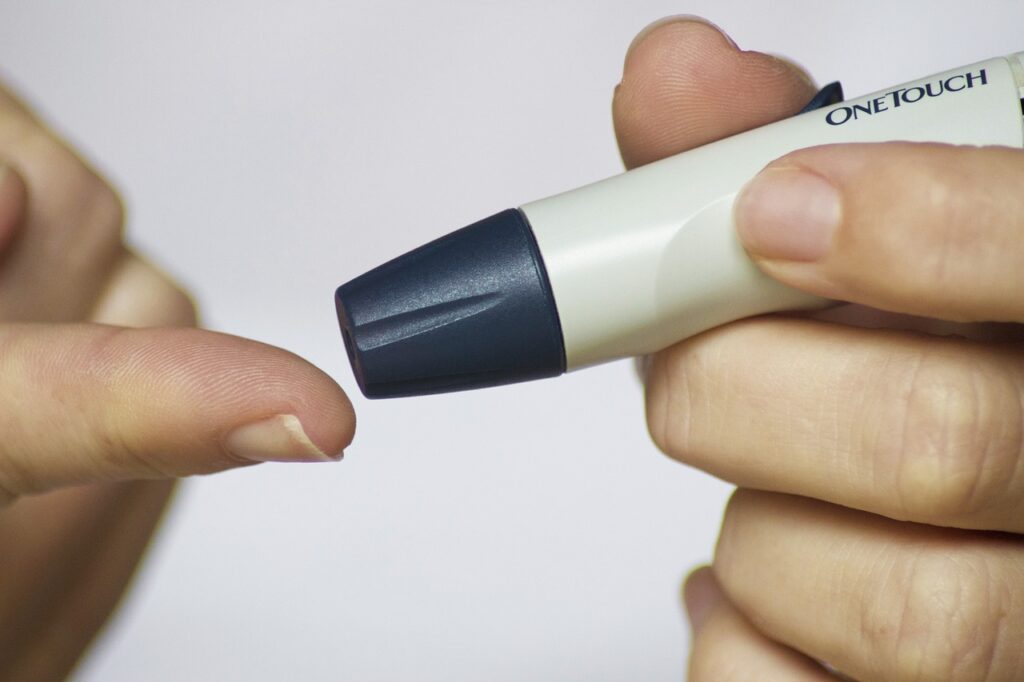By Debbie Bunch

Blood Test for COPD, Other Respiratory Conditions on the Horizon
In a study funded by the National Institutes of Health (NIH), U.S. researchers have found that a blood test that analyzes 32 proteins can accurately predict who will develop COPD and other respiratory conditions.
The investigators created the test by first reviewing lung health data collected from 2,470 adults, ages 18-30, who were participating in a 30-year cardiovascular health study. Thousands of proteins from blood samples taken from the participants at the 25-year mark were screened to identify which proteins best predicted rapid decline in lung function as measured by regular lung function tests.
Thirty-two proteins were selected and used to create a risk score to predict how likely a person would be to end up with a chronic lung condition or die from a severe respiratory event. Overall, 138 study participants experienced a sharp decline in lung function.
Specific findings linked higher scores to –
- A 17% increased chance of requiring hospital care for respiratory illness.
- An 84% increased chance of developing COPD.
- At least an 81% increased chance of dying from a respiratory disease, such as COPD or pneumonia.
- A 10% increased chance of experiencing respiratory exacerbations, such as a cough, mucus, or shortness of breath, that required treatment.
The risk score was also used to retrospectively assess respiratory disease risks in more than 40,000 adults from two earlier observational studies to test its validity, with results showing the prediction model successfully identified adults who had the greatest chance of having severe respiratory conditions even after confounding factors were accounted for.
“Loss of lung function on a year-over-year basis is associated with poor respiratory health outcomes, but we do not have a good way to easily figure out if a patient is on a steep trajectory of lung function decline,” said study co-author Ravi Kalhan, MD, from Northwestern University. “If we had an easy-to-implement clinical tool, like a blood test, that captured someone’s lung function trajectory at a single time point, it would enable earlier interventions which might, in the long run, improve lung health.”
James P. Kiley, PhD, director of the Division of Lung Diseases at NIH’s National Heart, Lung, and Blood Institute, emphasized that the test is not yet ready for common practice, but he believes it is a promising advance, noting that, “It consolidates insights from decades of breathing tests and medical evaluations into a single tool that has the potential to identify patients at risk for severe disease and complications.”
The study was published by the American Journal of Respiratory and Critical Care Medicine. Read Press Release Read Abstract

Diabetes-Asthma Link
Researchers from Taiwan who presented their findings at the recent European Association of the Study of Diabetes meeting in Madrid suggest people with type 2 diabetes are more likely to develop asthma – and vice versa.
The meta-analysis reviewed data from 17 million people who took part in 14 previous studies conducted worldwide, including the U.S. Most participants were between the ages of 50 and 70 years old.
Results showed people with asthma were 28% more likely to develop type 2 diabetes than those without asthma and people with type 2 diabetes were 83% more likely to develop asthma than those without type 2 diabetes.
The authors believe these findings point to common underlying causes or other common factors between the two conditions.
The analysis went on to discover that hypertension and dyslipidemia also raised the risk of both asthma and type 2 diabetes.
“Our findings have important implications for clinical practice. Firstly, this relationship emphasizes the need for greater awareness among patients with type 2 diabetes or asthma and their health care providers,” said study author Dr. Nam Nguyen. “Secondly, preventive strategies should be considered to lower the risk of type 2 diabetes in individuals with asthma.”
He specifically cites the need to screen for and address prediabetes in asthma patients and carefully managing the use of systemic corticosteroids, which can cause temporary hyperglycemia and have also been linked to an increased risk of type 2 diabetes. Read Press Release Read Abstract

Puppy Love
Therapy dogs have long been used to raise the spirits of people who are hospitalized with serious medical conditions. Could they do the same for the health care workers charged with caring for them?
According to a recent study published by the International Journal of Complementary & Alternative Medicine, they can. Researchers from Ohio State University and Wexner Medical Center reached that conclusion after conducting a pilot study on their Buckeye Paws program, an initiative started just before the pandemic began in 2020 to bring health care workers together with therapy dogs for a little one-on-one time during their shifts.
In the study, 64 workers, including physicians, nurses, respiratory therapists, and others from two medical ICUs and two medical-surgical units were assigned to either an intervention or waitlist group. Those in the intervention group were offered the animal assisted activities three times per week for eight weeks. Each visit with the therapy dogs lasted about 20 to 60 minutes, with workers able to decide how much or little time they spend with them. Visits took place in clinical workstations, team rooms, and other staff areas.
After the intervention group took part in the program, the waitlist group was offered the chance to participate as well.
The investigators measured stress, burnout, and work engagement pre- and post-intervention, finding that many reported a decrease in perceived stress, emotional exhaustion, depersonalization, and burnout immediately following the visits.
Overall, self-reported positive mood nearly doubled among the workers who engaged with the dogs.
“The recruitment for this study was incredibly easy because as soon as you said, ‘We’re going to do a study assessing your response to therapy dog interaction,’ people were like, ‘I’m in!’” said study author Beth Steinberg, PhD, RN. ““We brought the dogs to the units and many times we had staff in tears sitting with the dogs, telling them about their day.” Read Press Release Read Full Paper








